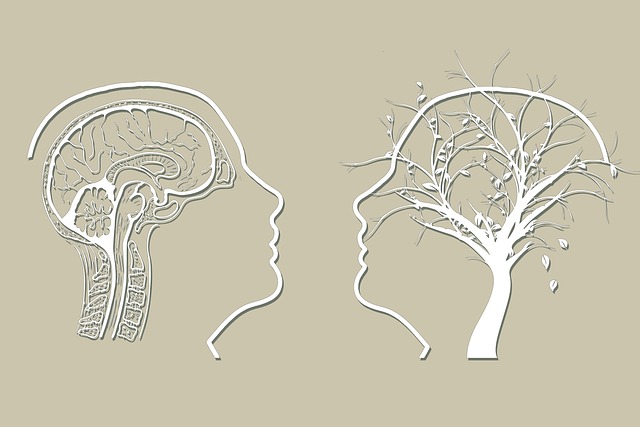Therapy for Adults incorporating mindfulness practices is a powerful crisis intervention strategy. By focusing on present-moment awareness and non-judgmental acceptance, this approach helps individuals regain control during distressing situations. It prevents depression, burnout, and trauma healing, enhances self-awareness, fosters empathy through active listening, and equips stress management tools. Incorporating mindfulness techniques in therapy, workshops, and coaching programs has shown significant benefits for crisis intervention, promoting long-term mental health stability.
“In moments of crisis, effective intervention strategies can make all the difference. This article provides an insightful guide into navigating tumultuous times, focusing on essential tools for professionals. We explore ‘Understanding Crisis Intervention’ and its core components, emphasizing the unique role of therapy in adult crisis management. Discover how mindfulness emerges as a powerful ally, offering practical techniques to enhance interventions. By delving into these strategies, we aim to empower individuals to handle crises with resilience and grace.”
- Understanding Crisis Intervention: A Brief Overview
- The Role of Therapy for Adults in Crisis Management
- Mindfulness as a Powerful Tool During Crises
- Practical Strategies for Implementing Effective Interventions
Understanding Crisis Intervention: A Brief Overview

Crisis intervention strategies are crucial for helping individuals navigate through moments of intense distress and potential danger. These interventions aim to provide immediate support, ensure safety, and offer guidance toward lasting recovery. When a person is in crisis, whether it’s due to acute stress, trauma, or suicidal ideation, professional assistance can make all the difference. Therapy for adults that incorporates mindfulness has emerged as an effective approach, helping individuals regain control and find clarity amidst turmoil.
By focusing on the present moment and cultivating awareness of thoughts and feelings without judgment, mindfulness practices empower people to cope with challenging emotions. This form of therapy supports not only depression prevention but also serves as a robust tool for burnout prevention. Moreover, it can be tailored to meet the unique needs of those seeking trauma support services, offering a safe space to process and heal from past traumas.
The Role of Therapy for Adults in Crisis Management

In crisis management, therapy for adults plays a pivotal role as it equips individuals with effective coping mechanisms. Through structured sessions, therapists help clients develop mindfulness skills, enabling them to remain grounded and calm during distressing situations. This practice fosters self-awareness, allowing adults to recognize triggers and early signs of crises, thus promoting proactive management.
The therapeutic process involves building empathy, a crucial strategy for understanding and connecting with individuals in crisis. Therapists employ various techniques, such as active listening and reflective practices, to create a safe space where clients feel heard and supported. Additionally, incorporating stress management workshops within therapy sessions empowers adults with practical tools to navigate high-pressure situations, enhancing their overall resilience and emotional well-being. Effective communication strategies are also integral to crisis intervention, ensuring that therapists can facilitate open dialogue, build trust, and provide tailored guidance.
Mindfulness as a Powerful Tool During Crises

In times of crisis, mindfulness emerges as a potent tool that can significantly enhance an individual’s ability to navigate turbulent waters. This ancient practice, often incorporated into therapy for adults, encourages individuals to focus on the present moment, observing their thoughts and emotions without judgment. By cultivating awareness, people can develop a sense of calm and clarity amidst chaos, enabling them to make more rational decisions and effectively manage stress.
Integrating mindfulness techniques into crisis intervention strategies has been shown to be highly beneficial for mental health policy analysis and advocacy. Mental wellness coaching programs development can incorporate mindfulness exercises, such as breathing awareness and body scans, to support individuals in regulating their emotional responses. Furthermore, mental wellness journaling exercise guidance may include prompts that encourage reflection on present experiences, fostering a deeper understanding of one’s triggers and coping mechanisms. These practices empower individuals to take proactive steps towards mental wellness, ensuring they have tools to manage future crises effectively.
Practical Strategies for Implementing Effective Interventions

In implementing crisis intervention strategies, a practical approach involves incorporating techniques that enhance emotional resilience and promote mental well-being. One effective method is integrating therapy for adults with a focus on mindfulness. Mindfulness practices have been shown to reduce stress, improve attention, and foster better emotional regulation, all of which are crucial in prevention measures like burnout avoidance and depression management. By teaching individuals how to be present and attentive without judgment, crisis interventions can empower them to navigate challenging situations more effectively.
Additionally, building confidence is a key component of successful interventions. Encouraging open communication, active listening, and empathy-building skills helps individuals feel heard, understood, and supported. This not only enhances their ability to articulate their needs but also boosts self-esteem and resilience in the face of adversity. Strategies that combine mindfulness practices with confidence-boosting techniques create a holistic approach to crisis intervention, fostering long-term mental health and emotional stability.
Crisis intervention strategies, guided by an understanding of adult therapy and mindfulness practices, offer powerful tools in managing and mitigating personal crises. By integrating these evidence-based techniques, professionals can provide effective support, fostering resilience and promoting positive outcomes for those facing challenging situations. The combination of theoretical knowledge and practical strategies outlined in this article equips individuals with the skills to navigate crises, emphasizing the importance of therapy for adults and mindfulness as foundational components in crisis management.














